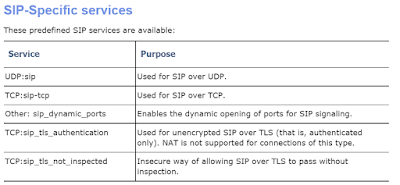Capacity Planning - Microsoft Office Communications Server 2007
Microsoft Office Communications Server 2007
Capacity Planning
The following requirements are based on the following user model and assumes that each deployment supports IM, Web conferencing, and audio-video and voice.
Table 32 Maximum Supported Users for each Topology
| Topology | Servers Required | Maximum Users Supported |
| Standard Edition Server | 1 Standard Edition server (Optional) Archiving Server collocated | 5,000 |
| Enterprise pool: Consolidated Configuration | 4 Enterprise Edition Front-End servers running all server roles 1 Backend SQL Server (Optional) 1 Archiving Server | 30,000 |
| Enterprise pool: Expanded configuration With Mid-Range Performance SQL Backend | 4 Front-End Servers 2 Web Conferencing Servers 2 A/V Conferencing Servers 2 IIS Servers 1 Backend SQL Server (Optional) 1 Archiving Server | 50,000 |
| Enterprise pool: Expanded configuration With High Performance SQL Backend | 8 Front-End Servers 4 Web Conferencing Servers 4 A/V Conferencing Servers 2 IIS Servers 1 Backend SQL Server (Optional)2 Archiving Servers | 125,000 |
| |
| Two IIS Servers are recommended for improved availability in the Expanded Configurations. |
Edge server topologies assume 10 percent of the total user base will be connected from outside the intranet. The following table shows the maximum number of client connections supported by each of the following edge server roles and topologies.
Table SEQ Table \* ARABIC 33 Maximum Supported Users for each Topology
| Topology | Supported Performance |
| Stand-alone Access Edge Server | 15,000 client connections |
| Stand-alone Web Conferencing Edge Server | 3,000 client connections |
| Stand-alone A/V Edge Server | 1,500 concurrent audio/video sessions |
| Collocated Access Edge & Web Conferencing Edge Server | Access Edge Server: 5,000 client connections Web Conferencing Edge Server: 1,500 client connections |
| Collocated Access Edge, Web Conferencing Edge & A/V Edge Servers (Consolidated Edge Topology) | Access Edge Server: 5,000 client connections Web Conferencing Edge Server: 1,000 client connections A/V Edge Server 500 concurrent audio/video sessions A/V experience may be degraded if sessions approach the maximum limit. We recommend that you deploy a separate A/V Edge Server for the optimal A/V experience. |
Deployment of a Director is recommended for external access. An array of Standard Edition Directors with at least two servers is recommended for topologies with up to 125,000 users. Additional servers may be added to the array for increased performance.
![]() Audio/Video Capacity Planning Model
Audio/Video Capacity Planning Model
This section summarizes the model used as a basic of our hardware recommendations for audio and video. Our capacity planning model is based on the following assumptions:
- In meeting with more than five participants, five users have active bidirectional (send/receive) media streams at a time. All other users are muted (receive only).
- All media streams are encrypted using SRTP.
- Audio Talking profile is based on the following:
· 80 percent of the time 1 user talks
· 7 percent of the time 2 users talk
· 13 percent of the time nobody talks
All video streams assumed are 244 Kbps with 15 fps.
When running on the recommended hardware (see Hardware for A/V Conferencing Servers and A/V Edge Servers, in Server Platform Requirements), the following table summarizes the Audio/Video Conferencing Server capacity in different scenarios based on this audio/video model.
Table 34 Audio Video Conferencing Scale Numbers on Recommended Hardware
| Scenario | Description | Total Number of Users | Bandwidth Consumption |
| Small Conferences | 65 conferences x 3(Audio +Video) users | 454 | 143 Mbps |
| | 35 conferences x 3(Audio-Only) users | | |
| | 21 conferences x 5 (Audio+Video ) users | | |
| | 11 conferences x 5 (Audio-Only) users | | |
| Large Conferences | 8 conferences x 250(Audio+Video) users | 3,000 | 555 Mbps |
| | 4 conferences x 250 (Audio-Only) users | | |
| Small, Medium and Large Mixture | 32 conferences x 3 (Audio+Video) users | 1,190 | 253 Mbps |
| | 13 conferences x 3 (Audio) users | | |
| | 23 conferences x 5 (Audio +Video) users | | |
| | 9 conferences x 5 (Audio) users | | |
| | 5 conferences x 15 (Audio + Video) users | | |
| | 4 conferences x 15 (Audio) users | | |
| | 4 conferences x 50 (Audio + Video) users | | |
| | 2 conferences x 50 (Audio) users | | |
| | 2 conferences x 105 (Audio) users | | |
| | 1 conferences x 250 (Audio + Video) users | | |
| Small, Medium Mixture | 35 conferences x 3 (Audio + Video) users | 889 | 210 Mbps |
| | 18 conferences x 3 (Audio) user | | |
| | 19 conferences x 5 (Audio + Video) users | | |
| | 16 conferences x 5 (Audio) users | | |
| | 8 conferences x10 (Audio + Video) users | | |
| | 5 conferences x 10 (Audio) users | | |
| | 8 conferences x 25 (Audio + Video) users | | |
| | 3 conferences x 25 (Audio) users | | |
| | 2 conferences x 50 (Audio+ Video) users | | |
| | 1 conferences x 50 (Audio) users | | |



Comments
Post a Comment